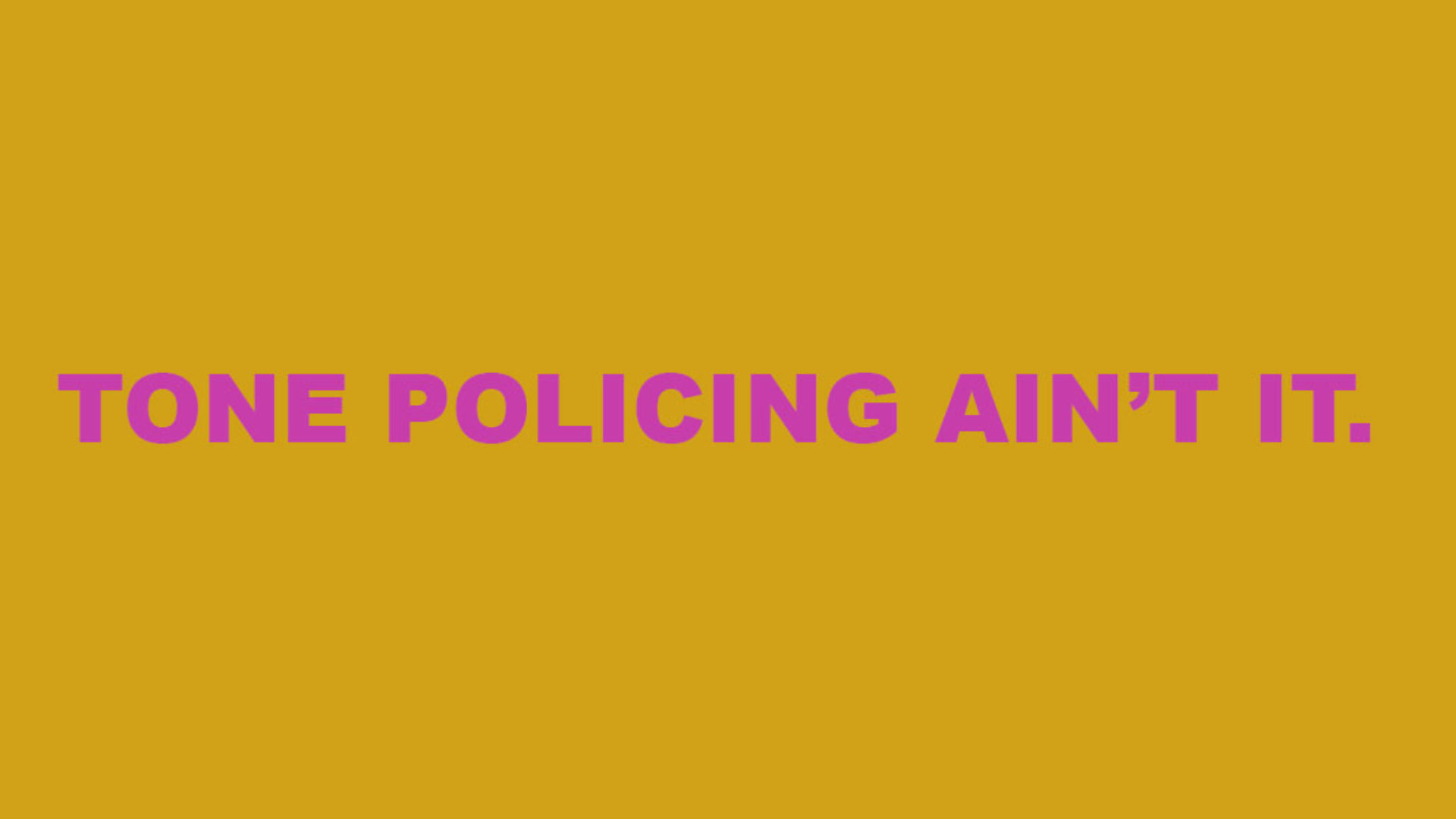
When someone is unable to critique your message, but they are uncomfortable with you, often what’s next is they critique your methodology. A particularly harmful form of this condemnation is tone policing.
Tone policing is an annoyance Black women regularly have to endure. It’s when you’re told that the way in which you’re sharing information or expressing yourself is wrong only because of how you’re saying it. An extension of the angry Black woman trope, its foundation is fragile egos and white discomfort, making it a common tactic for those who would rather silence Black women than solely listen to our stances.
To attempt to control someone’s expression is to say that you do not respect their right to speak to you, or to anyone, in a manner that does not coddle you. Policing is especially agitating when one is teaching, because it can distract from the power of the information being offered. This is rather ironic because sometimes that’s exactly what Black women’s tones are accused of doing–distracting.
When men speak their minds, whether their opinions are backed by literature or not, they’re applauded for their willingness to “tell it like it is.” They often don’t have to filter themselves, especially in creative endeavors such as music and art, because other men will cape for them regardless of how they share their views. Intention trumps conversational techniques and courtesy isn’t a necessity.
It’s exhausting, and unnecessary, to soften your messaging simply because it’s not worded in a way that makes others comfortable. This is not a license to be cruel because there’s more than enough of that, especially in digital spaces. But sometimes, one’s truth, or ideas of what society should look like, are raw. We can’t always put medicine in ice cream in hopes of being liked.